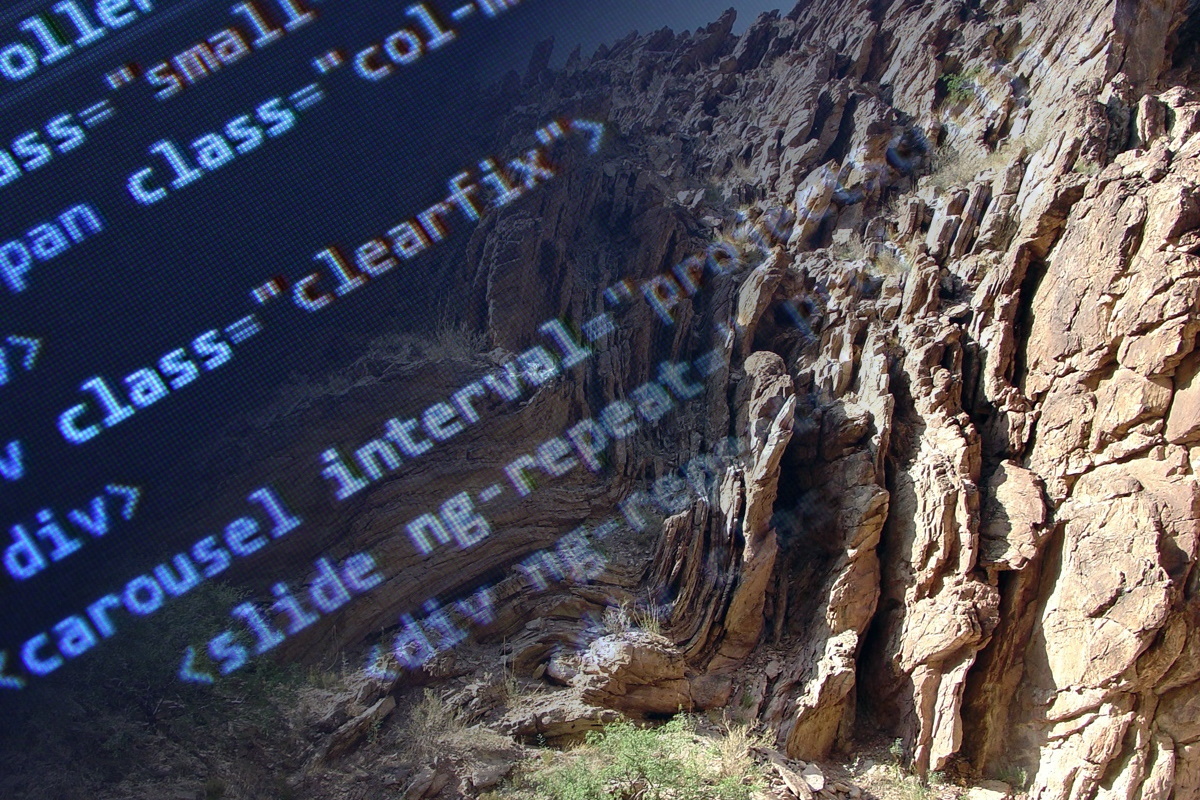
Failing the FizzBuzz of geology
Posted at 10:00 on 06 December 2021
How much scientific knowledge do you need to fact-check young Earth claims?
Literal Six Day Young Earth Creationists love to point to the credentials of their leaders. Andrew Snelling and Steve Austin have PhDs in geology; Jason Lisle, Russell Humphreys and John Hartnett have PhDs in astrophysics; and John Sanford has a PhD in genetics. The irony of this is, of course, that they are quite happy to dismiss the overwhelming majority of PhDs who aren't young Earth creationists out of hand. But the implication of this is, of course, that if you don't have a PhD yourself, then you should just shut up because you don't have the authority to contradict them.
Or do you?
In my own field of software development, we have a problem. Very often, when interviewing job candidates, we will get someone with an impressive looking CV and impressive looking qualifications, yet who struggles to handle even the most basic programming tasks. When faced with such candidates, we need to filter them out at the earliest possible stage of the recruitment process in order to avoid wasting time and money.
To this end, candidates are often asked to complete a ridiculously simple coding exercise right at the very start of the interview process, typically in the initial phone screen. The most famous example is called the FizzBuzz test. It is based on a children's game, and it asks you something like this:
Print out the numbers from 1 to 100. But for every number divisible by three, print "Fizz". For every number divisible by five, print "Buzz". If a number is divisible by both three and five, print "FizzBuzz".
Even entry-level developers should be able to answer this question with their eyes closed. But many candidates -- some of whom even have PhDs in computer science -- struggle with it.
Only if they manage to complete FizzBuzz does the interview then proceed to more advanced topics such as object oriented design patterns, regular expressions, database concurrency, test driven development, or machine learning. If they don't, they are thanked for their time, the phone screen is cut short, and they are not invited for a second on-site interview.
One point worth noting is that as well as being a very simple test to answer, this is also a very simple test to administer. A suitably briefed member of your HR team should be able to weed out the non-FizzBuzzers armed with nothing more than the most rudimentary understanding of programming, and a crib sheet highlighting the important things to look out for. For what it's worth, here is what it looks like in Python:
for i in range(1, 101):
if i % 3 == 0 and i % 5 == 0:
print('FizzBuzz')
elif i % 3 == 0:
print('Fizz')
elif i % 5 == 0:
print('Buzz')
else:
print(i)
Young Earth Non-FizzBuzzers
There are some young Earth claims that I wouldn't expect everyone to be able to fact-check. It took me several evenings to understand the RATE project's study on helium diffusion in zircons, for example. I had to read the RATE report itself, its critiques, the RATE team's responses to the critiques, and a whole lot of background information. I had to revise areas of physics that I hadn't looked at since I left university. I wouldn't expect anyone without a university degree in physics or geology to even know where to begin with that one.
But this is where FizzBuzz comes in. Discussing helium in zircons is the geological equivalent of asking a job candidate to create a neural network to implement biometric face recognition software from scratch, in assembly language, on the Nintendo Switch. Instead, start with the claims that are easiest to understand and easiest to fact-check, and work up from there.
For example, you don't need a degree in anything to see that when a PhD geologist claims that a rock formation is not fractured, yet photos on his organisation's own website clearly show fractures in the very places where he claims there aren't any, he has failed the geological equivalent of FizzBuzz. Sure, he may try to explain away the fractures and "reinterpret" them when confronted by their existence, but when he started off by claiming that they weren't even there in the first place, how can you consider his "reinterpretation" to be credible?
Similarly, what scientific knowledge do you need to understand just how devastating a deal-breaker the RATE project's 22,000°C heat problem is for a young Earth? You just need to know that 22,000°C is four times as hot as the surface of the sun, six times as hot as the highest known boiling point to science, and hot enough to vaporise the surface of the Earth many times over. These are things you learn at school, or that you can find out with a simple Google search.
So here I pose the question. If a PhD geologist is making such easily falsified claims about aspects of geology that you, as a non-geologist, are able to fact check, why should you take them seriously when they talk about the aspects that you are not?